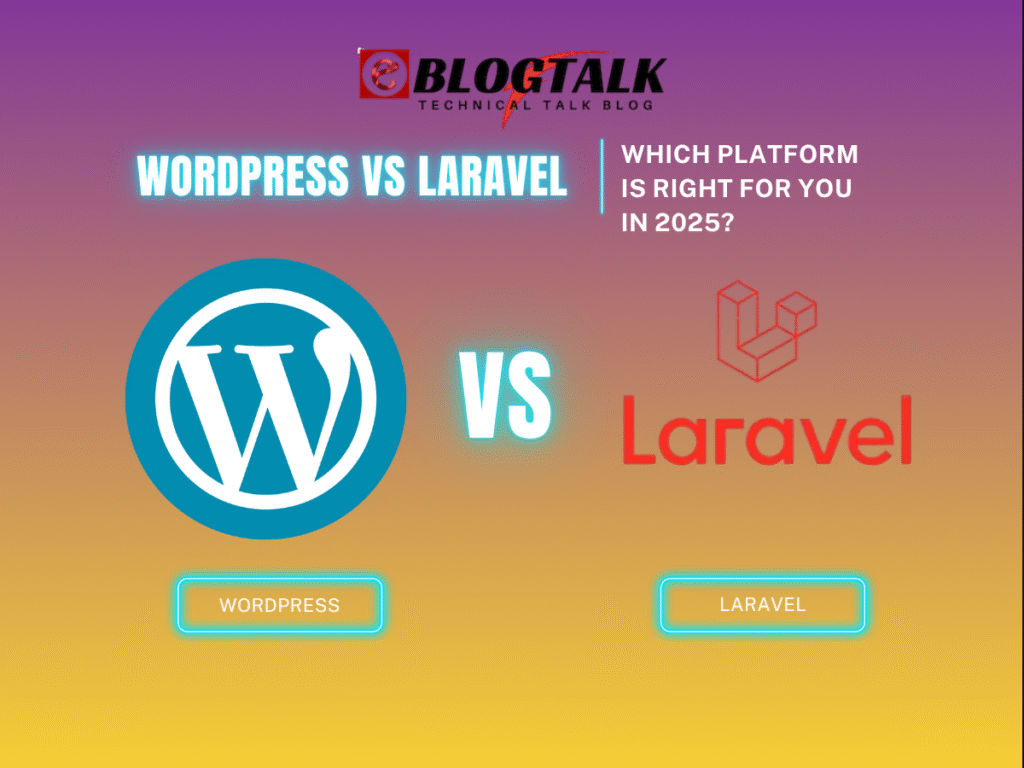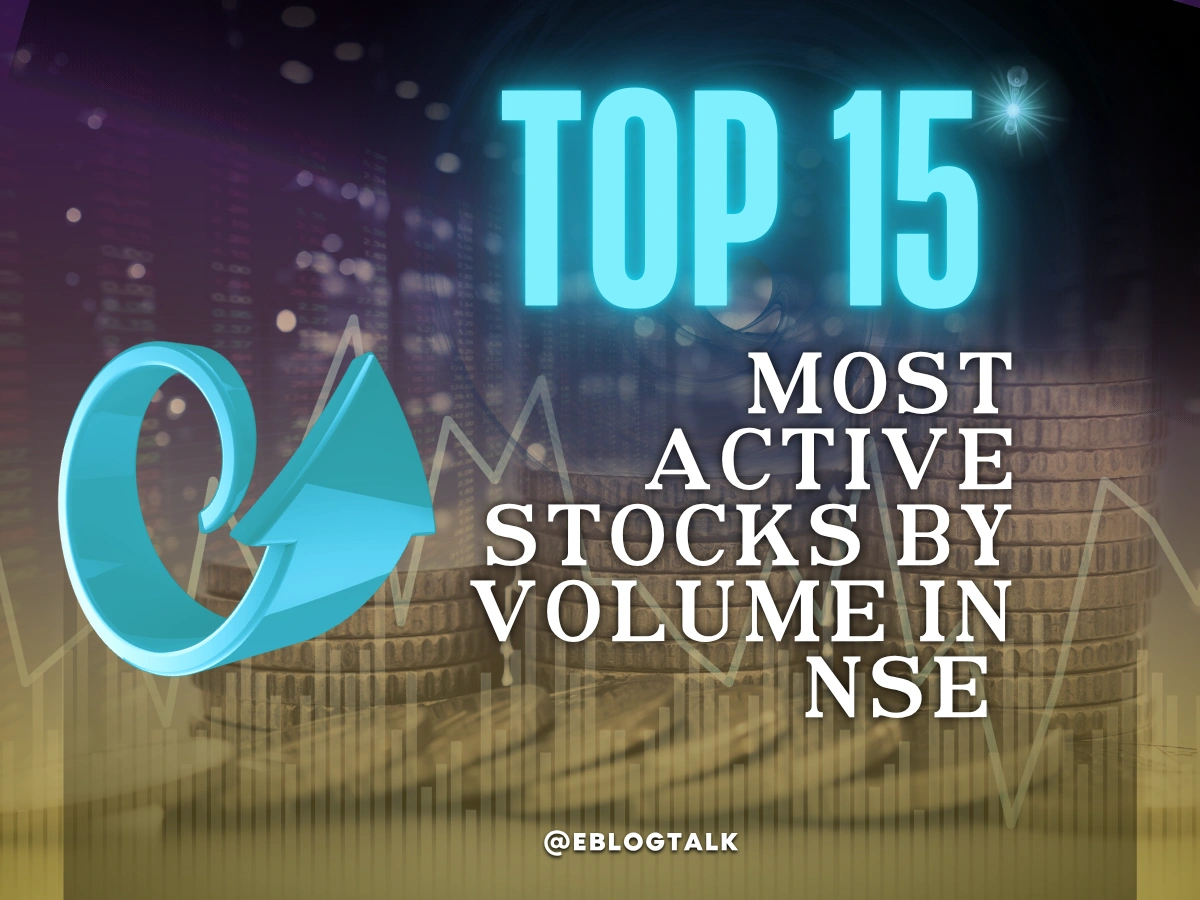Choosing the right platform for your web development project can make or break its success. WordPress and Laravel are still some of the most popular and potent tools in their category in 2025. WordPress is the king of the CMS world with its easy-to-use interface, whereas Laravel is a powerful PHP framework to build custom web applications.
WordPress is the best-suited platform to build content-rich websites, blogs, and online stores with thousands of available plugins and themes to implement in a short time. Instead, developers use Laravel due to its flexibility, MVC framework, and current code standards, which are ideal for creating scalable, secure, and complex web applications that are made on a blank slate.
In this article, we’ll compare the two giants—WordPress and Laravel—to help you decide which one better suits your project’s needs in 2025.
- Our Approach to Evaluating WordPress and Laravel
- Quick Comparison: Laravel vs. WordPress in 2025
- 1. Customization Showdown: WordPress Flexibility vs Laravel Control
- 2. User Experience: Is WordPress Easier than Laravel?
- 3. Website Growth Potential: Laravel vs WordPress for Scaling
- 4. Security in Mind: Which Platform Keeps Your Site Safer?
- 5. Managing Content: Who Does It Better in 2025?
- 6. Community and Support: Who’s Got Your Back?
- 6. Performance Battle: Which One Runs Faster Under Pressure?
- 7. Search Engine Visibility: SEO in WordPress vs Laravel
- 8. eCommerce Capability: Selling with WordPress or Laravel
- 9. Budget Check: Which Platform Is More Cost-Effective?
- 10. Content Handling: Which One Supports Your Strategy?
- 11. Expanding Features: Plugins or Code Packages?
- FAQs About WordPress vs Laravel in 2025
Our Approach to Evaluating WordPress and Laravel

When comparing WordPress and Laravel, it’s essential to understand that they cater to different audiences and project scopes. WordPress is a common content management system that is simple and has a huge plugin ecosystem. Laravel, on the other hand, is an efficient PHP framework that is targeted at developers who wish to create highly customizable, scalable applications on a bare-bones level. We will evaluate using technical capabilities and practical usage in 2025.
We began by determining some important decision-making criteria that apply to website owners, website developers, and business people. They are ease of use, customizability, security, scalability, performance, and the robustness of the community support. We also considered long-term maintenance, developer learning curve and how each platform scales with increasing traffic or complex functionalities.
We did not just review the technical specifications of each platform, but also how each platform performs in real-life scenarios, like launching an online store, creating a membership site or developing enterprise-level applications. We checked what has been updated recently, how usable each tool is in hands-on work, and how each tool fits the contemporary web standards, such as speed, SEO and API connectivity.
Quick Comparison: Laravel vs. WordPress in 2025
Aspect WordPress Laravel
- Primary Role: Rapid website building for all types of users. Full-stack custom app development
- Framework Type: Pre-built CMS with plugin architecture, MVC-based PHP development framework
- Learning Curve: Beginner-friendly with minimal setup. Requires coding skills and backend understanding.
- Customization Plugin/theme-based; limited by third-party tools. Fully customizable with developer freedom
- Security Features depend on plugins; they need ongoing maintenance. Built-in tools support secure, manual implementation
- Scaling Capability can be scaled with heavy plugin/developer support. Built to scale efficiently with caching and queues.
- User Community: Large ecosystem, forums, and non-technical support. Dev-focused community with rich technical documentation
- Ideal For Quick setup of blogs, stores, and brochure sites , Enterprise-grade apps and tailor-made web platforms.
More Resources:
Successful Entrepreneurs in India 2025
Young Entrepreneurs in India
MBA Chai Wala Net Worth 2025
Vivek Bindra Net Worth 2025
Aman Gupta Net Worth 2025
Emiway Bantai’s Net Worth 2025
Archana Puran Singh Net Worth 2025
Now let’s look at an 11-section expert comparison between WordPress and Laravel.
1. Customization Showdown: WordPress Flexibility vs Laravel Control
When it comes to making your website truly your own, WordPress and Laravel offer two different philosophies. WordPress has thousands of themes and plugins that enable its users to modify the look and functionality of their sites without having to edit a single line of code. This is why it is suitable when one is starting or has a small business that wants to go online quickly and without much technical complication.
Laravel, however, is a framework which allows developers complete control. No templates or shortcuts are available; all, including layout and backend logic, is coded by hand. Although this requires technical expertise, it also implies that you do not have to be restricted by the limitations of plugins or theme restrictions. You have complete control over the appearance and behaviour of your app.
Therefore, in case you need full customization and do not mind the code, Laravel enables you to have the power. But if speed and convenience are more your style, WordPress can get you up and running faster with less effort.
2. User Experience: Is WordPress Easier than Laravel?
WordPress is widely praised for its beginner-friendly interface. Its dashboard is user-friendly enough to be used even by those who are not knowledgeable in web development to install plugins, publish content in just a matter of minutes. It has a low learning curve, and this is one of the reasons it runs more than 40 per cent of the internet.
Laravel, on the other hand, is developer-specific. It presupposes the knowledge of PHP, Composer, the command line, and the MVC structure. It takes a steeper learning curve, but it is worth it in case you want to create a powerful, scalable application with tailored workflows and backend logic.
WordPress is an easier option, especially when you are a one-person creator or a small team that does not have a specific developer. However, Laravel is more suitable in the long term for businesses that have complicated needs.
3. Website Growth Potential: Laravel vs WordPress for Scaling
Scalability is critical when your website starts gaining traffic or expanding in features.
WordPress has been designed with blogging in mind, and even though it has been developed, large applications are usually scaled by including third-party caching solutions, CDN integrations, and optimization. When used excessively, there is a possibility of conflicts or slowdowns in the use of plugins.
Laravel has been designed to be scalable. It is a good choice to use with apps where the expectation is high traffic or complicated transactions, as it supports queues, caching, and load balancing and integrates with cloud services. It also allows database migrations and modular codebases, which makes long-term growth easier.
- Laravel is more reliable in case your project requires processing large quantities of visitors, real-time information, or increasing functionality.
- WordPress is also capable of scaling, but it usually comes with extra plugins and server updates. The performance-intensive environment can be a huge advantage when developing in Laravel because of its out-of-the-box scalability.
4. Security in Mind: Which Platform Keeps Your Site Safer?
In the current web environment, security is a major concern. Being the most popular CMS, WordPress is also the most targeted by hackers by nature. Although the basic WordPress application is safe, the actual danger is in the third-party themes and plugins that are coded poorly or are outdated, thus creating vulnerabilities.
Laravel, on the other hand, is a framework that has security features as the centrepiece. It promotes the best coding standards and has built-in features to protect against popular attacks such as SQL injection, cross-site scripting (XSS), and CSRF attacks.
This is the comparison between the two:
WordPress Security:
- Depends heavily on third-party plugin quality
- Needs frequent updates and manual monitoring
- Security plugins are available, but they add overhead.
Laravel Security:
- Intrinsic security, such as a hashed password and middleware
- Needs developer recognition, yet provides better premises
- Code is easier to enforce the security policy.
Laravel provides more control in case security is one of the core concerns, and you can access a skilled developer. WordPress can also be safe, but it requires attention, strict control over the use of the plugins, and regular updates.
5. Managing Content: Who Does It Better in 2025?
Content is king, and how it’s managed can make a big difference. WordPress was constructed to manage content. Blogs, articles, and page management are easy with its drag and drop features, media library, and an intuitive block editor (Gutenberg). The process of organizing and publishing posts does not require the participation of developers.
Laravel, as a development framework, does not come with a content management interface. You should write your system or install some headless CMS like Statamic or Nova.
Let’s break it down:
- WordPress Content Management
- Gutenberg editor for rich content formatting
- Easy scheduling, drafts, categories, and tags
- No coding required for most tasks
- Laravel Content Handling
- Build your own CMS from scratch or use packages.
- Full control over structure and formatting logic
- Ideal for custom data relationships and app logic
In case your site is content-based, i.e. blogs, magazines or news portals, WordPress is the winner. Laravel is best when content is just one part of a broader, custom functionality.
6. Community and Support: Who’s Got Your Back?
The community of a platform is significant in problem-solving, learning, and sustainability, especially long term. WordPress has one of the biggest open-source communities in the world. There exist endless forums, tutorials, YouTube channels and support groups on all levels of users.
The community of Laravel is smaller but very active and developer-focused. It has forums, Discord servers and Laravel conferences with deep discussions and code assistance.
Here’s a quick comparison:
WordPress Ecosystem
- Massive support community (official forums, Reddit, FB groups)
- There are thousands of third-party tutorials and video courses.
- There is plenty of DIY assistance for non-technical users.
Laravel Ecosystem
- The community is more oriented to developers
- Good documentation and Laravel Cast tutorials
- The support is very technical and code-oriented
6. Performance Battle: Which One Runs Faster Under Pressure?
When speed and performance come into play, both WordPress and Laravel have their strengths and weaknesses, but they approach optimization very differently. WordPress sites can be very fast, but they need a lot of tuning.
A WordPress installation can also run slowly out of the box when it is based on too many plugins or heavy themes. To get it up to speed, you will have to incorporate caching plug-ins, image optimizers, a decent hosting stack and a CDN.
Since Laravel is a developer-first framework, it is performance-oriented. It has default support for route caching, lazy loading, database optimization, and other advanced backend features. It is much lighter than WordPress in frontend bloat, and it does not have the overhead of plugins unless you make them yourself.
With that said, Laravel performance is nothing more than the skill of a developer. WordPress may be able to perform well on pre-configured tools and hosting, but Laravel will provide greater control, giving you the ability to optimize at a lower level.
In case of resource-intensive web applications or platforms that deal with complex logic and multiple users, Laravel generally performs better when put under pressure. WordPress is more than capable for content-driven sites, but it needs more babysitting to maintain consistent speed.
Other Resources:
AdSense Plugins for WordPress 2025
WordPress AntiSpam Plugins 2025
WordPress Form Builder Plugins 2025
Google Analytics Plugins For WordPress 2025
WordPress Advertising Management Plugins 2025
WordPress Cache Plugins to Improve Speed and Core Web Vitals 2025
WordPress Backup Plugins For Automated Backup 2025
7. Search Engine Visibility: SEO in WordPress vs Laravel
SEO is essential for any website aiming to attract traffic from search engines, and both platforms offer different ways to tackle it. WordPress has traditionally been the place to go when one is a novice in SEO and a marketer, due to the availability of plugins such as Yoast SEO and Rank Math. The tools enable the user to optimize keywords, meta titles, redirects, and sitemaps without entering a line of code.
Laravel does not have any built-in SEO features. Nonetheless, it is flexible and enables developers to create accurate SEO-friendly features from the ground up. You will be able to specify clean URLs, manage meta tags and generate XML sitemaps according to the structure of the site. This has to be coded or appended by third-party packages.
WordPress excels when it comes to plug-and-play SEO. Even a simple installation of several tools and on-screen recommendations provides you with quite good optimization results. On the other hand, Laravel provides developers with the resources to create a site that can be very well optimized, but the task is more manual and involves technical expertise.
8. eCommerce Capability: Selling with WordPress or Laravel
Setting up an online store can be done on both platforms, but the process and flexibility vary.
There is WooCommerce, which is an eCommerce WordPress plugin that can convert any site built on WordPress into an actual store. It is easy to use, fast to set up and best suited to small to medium-sized enterprises. Without writing a single line of code, you can handle products, configure payment gateways, configure shipping, and keep track of orders.
Laravel is more complex and gives more control. Laravel Cashier, Laravel Jetstream, and solutions provided by third parties, such as Bagisto, will get you a solid eCommerce platform.
Using Laravel, all aspects of your store, including the shopping cart process and bespoke checkout logic, can be exactly as you desire. It applies to businesses that require sophisticated functionality, integration, or business-specific processes.
Although WooCommerce is an excellent choice in terms of launching an online store within a short time, it has its limitations as far as scalability and customization are concerned. Laravel, however, fits best the business that wishes to expand outside of the traditional structure and needs something special.
9. Budget Check: Which Platform Is More Cost-Effective?
One of the biggest considerations when choosing between WordPress and Laravel is the cost, not just upfront, but long-term as well.
- The cheaper alternative in the beginning can be WordPress. Most themes and plugins are free or inexpensive, and the number of shared hosting providers that support WordPress is large.
It does not require much investment to create a simple site to be used by a small business.
- Laravel also needs extra technical resources right off the bat. You will require a developer, perhaps a team, to develop and support your application. Custom development is time-consuming and hence costly.
Laravel app hosting is also more costly as it usually implies the use of VPS or cloud servers to have more control and performance.
WordPress cost can increase with time. As your site expands, you might require high-quality plugins, performance enhancements, and security fixes. Although Laravel is initially more expensive to develop, it can be more cost-effective in the long run for businesses which need scalable, stable and customized web solutions.
10. Content Handling: Which One Supports Your Strategy?
WordPress is the best option to use in content-heavy websites. It has a content-creator-specific editor, media manager, and publishing tools. Marketing teams, news sites, and bloggers adore the platform as they can operate it without the assistance of developers.
Laravel does not come with content management. You have to develop your own CMS or adapt to a third-party system, which is best suited to custom or enterprise requirements.
Why WordPress excels:
- Intuitive block-based content editor
- Built-in media and post management
- Supports multiple authors and editorial roles
Where Laravel fits:
- Custom apps with unique content structures
- Use of headless CMS options like Statamic or Contentful
11. Expanding Features: Plugins or Code Packages?
WordPress is better in terms of fast features. Thousands of plugins allow you to add SEO tools, contact forms, galleries, and so on with a single click. Laravel brings in Composer packages, which are highly effective and need to be integrated by a developer.
WordPress Plugin Benefits:
- Quick installation, no coding needed
- Huge community of free and premium plugins
Laravel Package Highlights:
- Cleaner, modular architecture
- Requires coding but offers greater flexibility
Choose WordPress for ease, Laravel for control.
Conclusion
Having discussed the main distinctions between WordPress and Laravel in terms of performance and SEO, customization, security, and content management, it is high time to compare the two frameworks to see which will be more appropriate to use in your project in 2025.
- If your goal is to launch a site quickly, manage content easily, and avoid deep technical work, WordPress is the logical choice.
It is perfect to use on blogs, small company websites, portfolios and eCommerce stores that do not need intense customization. It enables non-developers to be in charge of it without necessarily being a coder.
- Laravel is the framework of choice when you are developing a bespoke web application, a startup with special demands, or a system of enterprise grade, where each of the parts must be under close control.
It demands a higher level of technical skill, but it rewards that investment with flexibility, performance, and scalability.
Ultimately, it’s not about which platform is better overall—it’s about which one aligns with your project’s goals, timeline, budget, and technical resources. They are both fantastic tools in the right context, and knowing their strengths will help you make a smarter, future-proof decision.
FAQs About WordPress vs Laravel in 2025
1. Is WordPress or Laravel better for SEO in 2025?
WordPress is easier for SEO with plugins like Rank Math, while Laravel offers more control for custom optimization through code.
2. Which is more beginner-friendly: WordPress or Laravel?
WordPress is simple to use and has a no-code configuration, whereas Laravel is developer-oriented and requires the knowledge of coding.
3. Can Laravel be used to build a blog like WordPress?
Yes, but Laravel is a custom development or CMS integration as opposed to WordPress, which is geared towards blogging.
4. Which one is more scalable to high-traffic websites?
Laravel is more scalable out of the box, and WordPress requires optimization tools and a sophisticated host in order to scale effectively.
> My Response is on my own site
> Image Sharing Sites
> Profile Submission Sites
> Edu Sites for Backlinks
> Ping Submission Sites
> PDF Submission Sites
> Social Bookmarking Sites
More Resources:
> What is breadcrumb navigation for SEO?
> Mobile SEO Mistakes
> How do we improve page speed- The Complete Guide
> SEO Myths about website optimization






